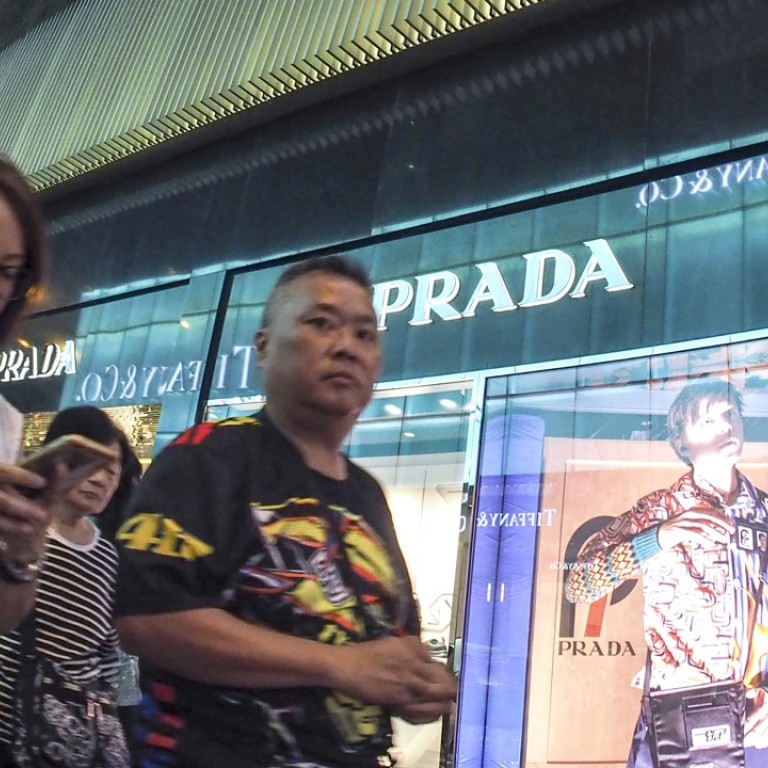
Prada shares slammed 10.5 per cent lower in Hong Kong, as sell-off hits luxury goods makers
The Milan-based luxury brand saw its Hong Kong shares tumble sharply in Hong Kong trade on Thursday, amid signs that mainland consumers are spending less
Shares of luxury brand Prada Spa tumbled on Thursday following steep declines in peers around the world, prompted by worries over China’s crackdown on overseas shopping agents and gloomy consumer sentiment.
Prada’s shares in Hong Kong plummeted 10.5 per cent to close at HK$30.30, after luxury giants LVMH and Kering S.A. plunged 7.1 per cent and 9.6 per cent respectively in Paris on Wednesday.
The slump came after LVMH, the owner of Louis Vuitton, released its operating results for the third quarter, which revealed revenue rose 10 per cent to 11.4 billion euros (US$13 billion) from a year earlier, beating analysts expectations of 11.3 billion euros, according to a poll by Bloomberg.
The shares also appear to be pressured by comments by LVMH chief finance officer Jean-Jacques Guiony during the post-results press conference, where he said China appeared to be tightening its enforcement of import laws.
Unconfirmed reports had been circulating for more than a week about a crackdown by authorities on undeclared high-end goods at airports in Beijing and Shanghai.
“Obviously, we can’t measure whether clients are part of this tour or buying to resell or buying for themselves,” Guiony said. “So it’s very difficult. The one thing I would say is that, it’s not the first time that we see that. When the Chinese authorities have some laws with regards to importation of goods and luxury goods, these laws are being enforced with more strength at some point in time, which is exactly what we understand is happening.”
Slower spending during the week-long Golden Week holiday, among other data, also added to fears that mainland Chinese consumers are tightening their purse strings. The mainland accounts for nearly a third of the global luxury market by sales, according to McKinsey & Co.
“China has been the biggest factor driving the recovery of the global luxury industry since last year, so a slowdown in China would have a massive impact globally,” said Terry Hong, analyst at Guotai Junan Securities.
Hong said he believed authorities began tightening scrutiny of overseas shopping agents two years ago.
He said the stampede by investors out of luxury good makers was indicative of the cautious mood as market conditions cooled, but cautioned some sellers “overreacted to bad news”.
China’s luxury spending, which totalled 142 billion yuan (US$22 billion) last year, has proven to be under the sway of government policies. The market shrunk for three years after President Xi Jinping launched an austerity and anticorruption campaign in 2013.
Overseas shopping agents, commonly known as “daigou” in Mandarin, purchase goods from handbags to cosmetics and baby milk formula on behalf of Chinese clients in foreign countries, where prices are usually lower because of tariff differences.
Photos of dozens of shopping agents waiting in line with chunky suitcases at the Pudong International Airport under scrutiny for evading tariffs surfaced on China’s social media last week, prompting speculations of a clampdown.

